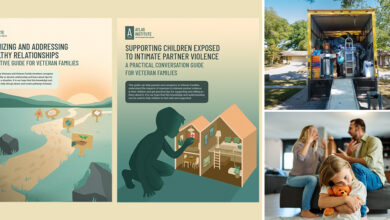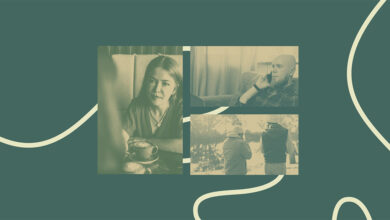Health and Wellness
Recognizing compassion fatigue
Last week was Mental Illness Awareness Week and light was shed on illnesses like post-traumatic stress disorder (PTSD), deservedly so. But an important narrative is often left out of this story, the narrative of the caregiver. Altering their whole reality and working behind the scenes to care for the ill and injured, many caregivers often fall victim to what is known as “Compassion Fatigue.”
Still newly surfacing in the medical world, Compassion Fatigue is when a caregiver is emotionally and physically drained when taking care of a loved one with a mental or chronic illness. Though institutions recognize Compassion Fatigue in the case of professionals, the family members are often left out of the picture. Many family members and spouses will point out it’s a conversation that’s seldom had.
“People don’t understand it’s not just in our institutions. It’s in our homes. It’s doing what you need to do to make the situation livable. That comes with a lot of stress and lot of anxiety. It affects all parts of your health as a caregiver,” said Kim Davis, a military spouse who’s been caring for her husband suffering from PTSD for over a decade now.
Caregivers affected by Compassion Fatigue are susceptible to sleep deprivation, high irritability, depression, apathy, guilt, anger, and helplessness. They can also suffer from physical ailments such as headaches, heart disease, emphysema and joint pain for those caring for someone with a physical injury.
Davis, just like many others caring for their spouse, left her career and changed her entire life to care for her husband. She moved her family from their home in Halifax to the country so her husband can keep horses for therapy. She points out that spousal caregivers not only take care of the ill, they raise their children and take care of the finances, causing the entire burden of a household to fall on one person.
Frustrated from the lack of information and resources Davis received from the government, institutions and even, she says, the military for dealing with Compassion Fatigue, Davis was among a group of women who founded the thecaregiversbrigade.ca. The website is a “one-stop shop” for providing information and resources to those taking care of ill and injured.
From her experience, Davis has learned, and strongly advises others to focus on self-care.
“It’s really important to define what self-care tools you need. Find what makes you happy what makes you distress. It’s about acknowledging you need help as well,” said Davis.
Davis also strongly suggests anyone caring for someone with a mental or chronic illness to reach out to a psychologist and reach out to a psychologist who specializes in what your loved one is suffering from.
Other options for self-care include exercising, yoga, getting a therapeutic animal, getting regular therapeutic massages and reaching out to family and friends.
Compassion Fatigue is also often characterized by shame because the caregiver believes they are supposed to be the strong one, often causing them to keep going until they reach their breaking point.
“Compassion Fatigue is sort of like a shame thing. You think ‘well why am I tired? I’m not the one who’s sick.’ We don’t give enough credit to ourselves that what we are doing is important. It’s an illness that really takes the better of you sometimes and it can be a long road back. And you can lose yourself and who you are because you let it go to help them,” said Linda Blanchette another military spouse who caring for her husband who suffered from PTSD.
After years of caring for her husband and falling victim to Compassion Fatigue, something happened that would change Blanchette’s life and entire purpose. On February 19 of this year, she was invited to speak from the perspective of a family caregiver at a conference sponsored by the Loomex Group on mental health in the workplace.
“To stand in front of this crowd that was there to learn about what PTSD does to the family was the scariest thing I ever did. I looked down on my speech and saw the picture of my family that I brought with me, they were my strength, and gained the strength to do it,” recalled Blanchette.
After her speech, Blanchette recalls those who suffered from illness approached her with emotional responses and expressing that now they understood what their families had gone through. Blanchette’s husband was in the audience that night as well, hearing her emotional journey for the first time.
After this event, Blanchette has realized she is a voice for those spouses, parents and children looking after a loved one. Her biggest project now is to compile a book bringing together the stories of caregivers from all walks of life and giving voice to their struggles. Currently, she has collected 30 stories.
“I am determined, on behalf of the families I am standing here talking about now, we will publish this book and we will get our story heard,”’ stated Blanchette.
From her own experiences and struggles with compassion fatigue, Blanchette also stresses the importance of self-care.
“Compassion Fatigue takes us down a road from where there is no return. We can do things that are not us. So when you realize this is the road you are taking, reach out for help and remember you are very important. We tend to forget about us as we only try to take care of all our loved ones involved. Reach out and remember to take time for you.
“If you are the well that they all come to for a drink, remember to keep you filled with water. If you dry out and there is no more water then you all fall for sure, but keeping you filled with water will help you all gain the strength to get through,” said Blanchette.
For more information about compassion fatigue, you can visit compassionfatigue.org or thecaregiversbrigade.ca.










